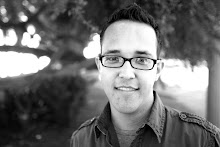Right now I’m in the process of writing a short essay on In Face of Mystery by Gordon Kaufman. From what I can tell from the portion of the book we read for class, I very much identify with his approach. One of the things that is central to his theology (and very interesting to me) is his understanding of religious traditions as symbolic frames. Here’s a quick run-down on “symbolic frames”:
Humans, as creatures whose lives are embedded in culture (we are “sociocultural animals”), try to make sense of their lives through symbolic frames. Early in human history, these symbolic frames took the form of stories—myths about humans and their place in our world. Over time these stories were modified and fleshed out, creating broadly encompassing worldviews that provided a framework for meaning in human life. Religious traditions are perfect examples of these symbolic frames—they had origins in early myths but were developed into what we now recognize as Christianity, Buddhism, Islam, etc.
What’s important to note, however, is that religious traditions aren’t static. They are culturally located and dynamic. Christianity in first century Palestine was drastically different from Christianity in fifth century Egypt, and that is drastically different from Christianity in twenty-first century America. The symbolic frame we call Christianity has grown and morphed over time along with the changing culture. As new ideas and new kinds of experiences became a part of people’s lives, the symbolic frame had to change in order to accommodate and make sense of the new aspects of life.
What’s important about this is that the symbols within the framework—the symbols that hold meaning and importance in our lives—are understood to be human creations. Because symbolic frames are socially constructed over time in particular cultures, the symbols within that frame are ever-changing in their valences and meanings.
This includes the symbol “God.” Anytime we talk about God, we are talking about something that is a human creation.
Whoa … hold up! Let me offer a quick explanation that may alleviate some distress. A symbol is made up two parts—the signifier and the signified. Take for instance an apple. We use the word “apple” (either the two syllables that you say with your mouth or the five written marks you make with your pen) to point to an object. The word “apple” is the signifier. The actual apple itself (either the slightly mushy one in your kitchen or a shiny, imaginary one in your head) is the signified. The signifier points to the signified. Put these two together, and you get a symbol. And it is only through symbols that we can have meaning. Symbols are the connection between our meaningful thoughts and the things we are thinking about.
Meaning is expressed in symbols. And symbols are human creations.
There may be an actual God (“God” the signified) whom we try to talk about with words (“God” the signifier)—but we have to recognize that there is no such thing as access to that God except through symbols. The only way we can talk about or think about God is by using humanly created symbols, or as Kaufman puts it: “all talk of God belongs to and has its meaning within a particular symbolical frame for orientation for human life.”
What this means is that anytime we talk about God, we are confronted by the symbols and meanings that we have created. But this human limitation also makes us more aware of the vastness of the mystery of God. Since we are limited in the face of a mysterious, ungraspable God, what option do we have except humble agnosticism?

